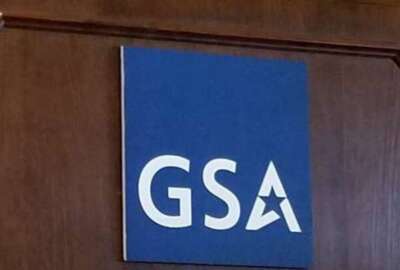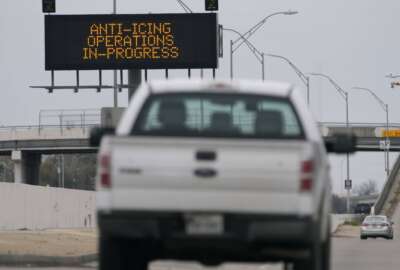Treasury primes e-invoicing platform ahead of OMB policy
A new memo from the Office of Management and Budget is expected to require agencies to use an established electronic invoice processing platform by a certain date.
wfedstaff | June 4, 2015 8:49 pm
The Office of Management and Budget is finalizing guidance to require agencies to process invoices electronically.
The policy, which has been in the works for the better part of a year, likely will not name a specific tool for agencies to use. But the Treasury Department is positioning itself so that its Invoice Processing Platform (IPP) is the application of choice for most agencies.
John Hill, the assistant commissioner for payment management at the Bureau of Fiscal Service in Treasury, said 80 agencies already are using IPP to process about 500,000 invoices in 2015.
“Clearly it has reached a state of maturity that it didn’t have in previous years. What we are seeing is agencies see the inevitability of electronic invoicing and they are jumping on board,” Hill said in an exclusive interview with Federal News Radio after a panel at the recent Joint Financial Management Improvement Program (JFMIP) annual conference in Washington. “There are other things that are going on outside that are important to note and that is the world as a whole is moving toward electronic invoicing. Right now, 35 nations have some kind of electronic invoicing mandate. In fact, the European Union has mandated it for all of their member states. What you are seeing is electronic commerce moving forward and IPP is being pulled along or travels along with that general movement.”
Sources say in initial versions of the policy OMB mandated the use of IPP. But the Defense Department and the Veterans Affairs Department have their own e- invoicing platforms and pushed back against the IPP requirement. So instead, sources say OMB will require agencies to use an established invoice processing platform by a certain date.
OMB Controller David Mader said in February that agencies certainly should better leverage Treasury’s infrastructure that runs IPP.
OMB officials at the JFMIP conference didn’t comment publicly about the IPP guidance.
50 percent savings by going electronic
Hill said he couldn’t speak directly to the OMB memo, but did confirm during his presentation that one was going through interagency review.
“It does recognize that OMB sees the value of electronic invoicing as a way of improving the efficiency of government,” he said. “So in a lot of ways, it’s not surprising that OMB is considering some sort of guidance or direction on electronic invoicing.”
Whether or not OMB mandates IPP or requires the use of electronic invoices, Hill said it’s getting harder and harder for agencies not to move in this direction.
Hill said agencies that have implemented IPP are seeing savings of around 50 percent compared to what it costs to process invoices by paper.
At the JFMIP panel discussion, James Beall, the Interior Business Center’s CFO, said not only is it cheaper to process invoices, but the IBC has decreased the amount of money paid in penalties for violating the Prompt Payment Act. This law requires agencies to pay vendor invoices within 30 days or pay interest on the balance.
Beall said prior to IBC using the IPP, the accountability for documents was distributed among several owners, but now all the information is in one place, making it easier to pay vendors.
The Agriculture Department is the largest agency to date to adopt IPP. The Small Business Administration, the Social Security Administration and the Government Publishing Office are among the other 80 federal organizations using the service.
In addition to agencies, more than 80,000 vendors signed up to get paid using IPP.
“The benefits to the vendor, very often the small business who is providing a good or service to the federal government, the benefits to them is significant because what it provides them is naturally faster payment, a lot more visibility to where their payment is, which is important to their cash flow, and also gets a lot of paper out of their offices,” Hill said. “We also have to talk about the data, talking about the DATA Act and the interest in quality of federal financial data. Because IPP and other e-invoicing systems are digital systems, they are actually enabling agencies to connect the data from their accounting systems to their procurement systems and ultimately to the expenditures, and really strengthening the quality of data.”
A much stronger, mature system
Hill and others say it’s actually getting easier for agencies to use IPP. Peter Moore, IPP’s Agency Outreach Liaison, said vendors are starting to include automatic interfaces back to the portal in their financial management systems. CGI’s Momentum is the only one so far, but Hill said the other two big financial management apps from Oracle and SAP are potentially in the works.
“A couple of changes on the forefront is streamlining and even making more simple the interfaces to agency in-house accounting systems,” he said. “I think making similar interfaces with some of the other [commercial] packages is a solution to lower the cost of implementing IPP at an agency.”
Hill said since Treasury started developing IPP in 2008, it has updated the software 150 times based on customer requests.
“What you have now with IPP is a system that reflects the best practices across the procurement industry in the federal government. So it’s a much stronger system,” he said.
Hill said despite the benefits and positive experiences by current customer agencies, several other departments haven’t made the switch yet.
He said part of the reason is the typical culture change, but it’s also because many haven’t seen a need to move to the new system.
“These agencies are all facing changes and mandates coming from all directions — accounting mandate, efficiency mandates and other compliance type mandates. They have to balance an entire range of pressures on their IT systems, on their IT staffs so what happens is naturally things have to get prioritized and electronic invoicing, as beneficial as it is, many times have to take a secondary position to some other, more pressing mandate,” Hill said. “The thing is electronic invoicing is getting simpler and easier to implement.”
Hill said beyond IPP, his office is working on several other complementary initiatives.
He said Treasury continues to move away from paper checks. At one time, Treasury issued 720 million paper checks, but that number is down to 50 million in 2015.
“We’re taking a very serious and strong look at mobile payments and e-wallet solutions to really get Treasury out of the paper business and back into a much more efficient electronic environment, which offers the benefits of speed, both to Treasury, and to the agency and private sector customers that we serve,” Hill said. “It also improves the quality of the data as well.”
RELATED STORIES:
OMB pushing agencies to use single system for online transactions
Treasury to process all invoices electronically
OMB’s Dave Mader: A zealot for shared services
Copyright © 2025 Federal News Network. All rights reserved. This website is not intended for users located within the European Economic Area.
Jason Miller is executive editor of Federal News Network and directs news coverage on the people, policy and programs of the federal government.
Follow @jmillerWFED






